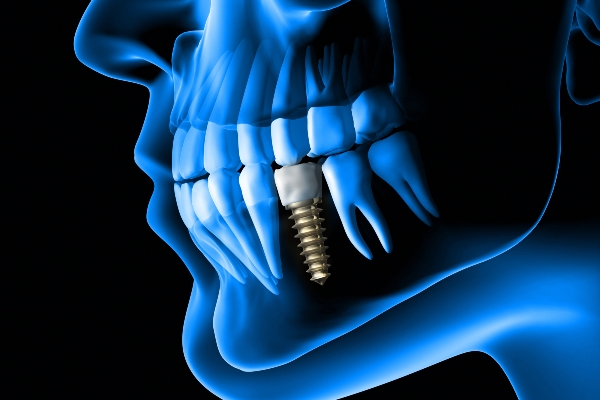TMD: Signs and Symptoms

TMD, also called temporomandibular joint disorder, is any problem affecting the joints that connect the lower jaw to the rest of the skull. The joint is complex, and works to move the jaw backward, forward, and sideways. The problem prevents the intricate system of ligaments, discs, muscles, and bones from working effectively. The precise cause of this condition is sometimes hard to determine.
Signs and Symptoms of TMD
Any patient suffering from a TMJ disorder is likely to experience the following symptoms:
Headaches
Headache is a common complaint of TMD patients. It could be persistent and severe, that many often confuse it with migraine headaches. TMJ headaches usually cause pain in the temple region, back of the head, and behind the eyes, with pain radiating down to the neck and shoulders. The patient needs to visit a dentist experienced in diagnosing and treating TMJ disorder.
Teeth Clenching and Grinding (Bruxism)
Bruxism is a common sign of TMJ disorder and puts undue stress on the strained, overworked, muscles of the jaw joints. The pain may be felt in the neck, head, shoulders, or back. Sometimes, the patient may notice worn, chipped, or cracked teeth.
Jaw popping or clicking
TMD may cause the jaw joints to make noises such as clicking and popping sounds. The clicking sounds are noted when the condyle shifts forward as the patient opens the mouth, causing the condyle to slip on and off the dislocated disc. The grating sound, also called crepitus, is the noise produced when the bones are rubbing against each other and happens when the dislocated discs become severely deformed.
The disc functions as protective padding between the two bones of the lower jaw (condyle) and the skull. Once the protective disc is deformed or dislocated permanently, the two bones will grind against each other and produce the loud sounds called crepitus.
Locked Jaw
TMJ dysfunction could also cause the jaw to lock when opened or closed. The treatment objective would be to correct the issue of the dislocated disc when clicking is happening and not defer the process until the noise gets louder. At that point, the patient will start experiencing severe discomfort of a locked jaw.
Ear Related Problems
Patients suffering from ear ache, buzzing or ringing in the ears, and/or stuffy ear feeling without the case of an ear infection could be dealing with a structural issue with the TMJ. The problem could be accompanied by symptoms such as hearing loss, loss of balance, and dizziness. If the condyle shift far backward and the disc dislocate forward, it could cause spasm of the chewing muscles, which could cause the symptoms listed. If there is no evidence of ear problem, it is advisable to visit the dentist for TMJ disorder treatment.
Sleep disturbances
Sleep disorders are common in patients dealing with jaw joint dislocation. It is usually hard to sleep when dealing with pain from severe muscle contractions and spasms caused by dislocation or jaw clenching.
Final note
If you notice any of the signs of TMD listed above, do not hesitate to book an appointment with the dentist for a diagnosis and treatment.
Request an appointment here: https://www.thanasasdds.com or call Thanasas Family Dental Care at (248) 260-2878 for an appointment in our Troy office.
Check out what others are saying about our services on Yelp: Read our Yelp reviews.
Recent Posts
Dental implants are an increasingly popular choice for individuals with missing or damaged teeth. They offer a variety of benefits over traditional dentures or bridges. However, they can also come with challenges, and not everyone will benefit from the procedure. This article will explore the pros and cons of dental implants to help you make…
Dental implants can bring back stability and aesthetic value to your mouth. Losing at least one tooth can affect your appearance. It can also affect the way you interact with other people. Getting implants is a big decision. That is why you need to know what the procedure entails. Here are the things you should…
A healthy smile requires a lifetime of care. Your family dentist can start looking after your teeth from a young age and continue through adulthood. Two visits a year are recommended for professional cleanings and thorough checkups, but it is also critical that you incorporate appropriate daily oral hygiene steps to prevent problems from occurring…
Dental implants are an effective replacement for missing and damaged teeth. There are, however, some factors that may cause implants to fail. If you have noticed the signs of failing implants — such as severe pain, trouble chewing, and gum inflammation — it is important to consult a dentist to curb the problem. This article…


